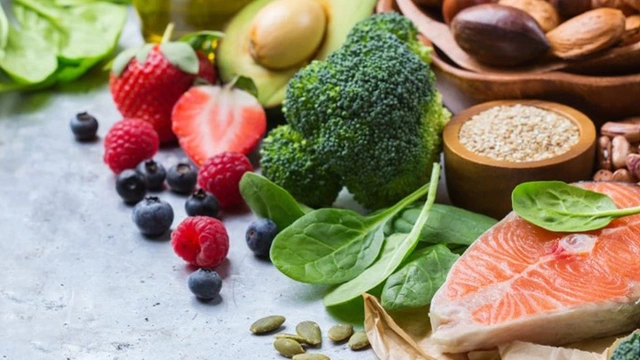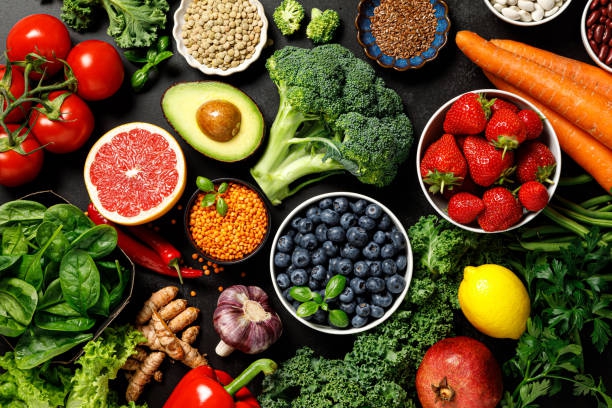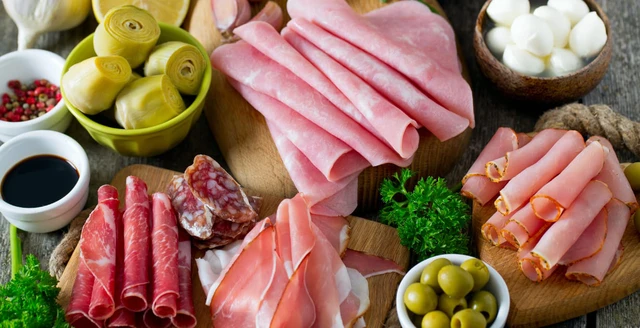Esophageal varices are swollen veins in the lining of the esophagus and often occur in people with liver disease. A proper diet is important for patients with esophageal varices.
Esophageal varices are one of the most common and fatal complications. Esophageal varices are swollen veins in the lower part of the esophagus. They are caused by increased pressure in the blood vessels of the liver. When pressure builds up in the liver, pressure also builds up in the veins in the esophagus.
Diet plays an important role in supporting the treatment of esophageal varices. By supplementing adequate nutrients and limiting harmful foods, patients can significantly improve their quality of life and reduce the risk of complications.
1. The importance of diet for people with esophageal varices

The right foods help people with esophageal varices significantly improve their quality of life and reduce the risk of complications.
Diet plays an important role in the management and treatment of esophageal varices. Choosing the right foods and avoiding certain foods can help reduce pressure on esophageal veins, liver disease, prevent bleeding and dangerous complications.
Reduce pressure on veins: Foods that are too hard, chewy or irritating can increase pressure on dilated veins, causing bleeding.
Prevent constipation: Constipation increases pressure in the abdomen, making it difficult to have a bowel movement and increasing the risk of vein rupture.
Support the digestive process: A healthy diet helps the digestive system function well, reducing the burden on the liver and spleen.
Provide adequate nutrition: Ensure the body has enough energy to recover and fight disease.
People with esophageal varices should divide their meals into several small meals a day and have a soft diet, natural soft foods including ripe bananas, eggs and cooked foods to prevent vein rupture. Soft foods that are easy to swallow or chew also help the digestion process quickly.
2. Essential nutrients for people with esophageal varices
Fiber: Helps prevent constipation, reduces pressure on the veins in the abdomen, and reduces the risk of variceal rupture.
Protein: Necessary for the recovery and regeneration of tissues in the body, especially the liver.
Vitamin C: Increases the elasticity and durability of blood vessel walls, helps support the production of collagen and elastin.
Vitamin K: Necessary for blood clotting, helps prevent bleeding.
Antioxidants: Protect cells from damage, reduce inflammation.
Minerals: Potassium helps control blood pressure, supports heart function; Magnesium helps relax muscles, reduces stress on blood vessel walls.
3. Foods that people with esophageal varices should eat and avoid
Foods to eat

Fruits and vegetables rich in antioxidants are good foods for the liver of people with esophageal varices..
Fresh fruits and vegetables such as blueberries, strawberries, pomegranates, grapes, apples, oranges, grapefruit, kiwi, bell peppers, tomatoes, pumpkin, kale, spinach, cabbage, etc. are rich in polyphenols (a type of antioxidant) that have been shown to protect liver health.
Add fruit to cereal or oatmeal for extra nutrition, fiber, and a little natural sweetness.
Low-fat Greek yogurt, small portions of low-sodium hard cheeses, and non-dairy milk alternatives such as almond or soy.
Choose whole-grain breads, pastas, brown rice, and cereals over those made with refined white flour.
Eat lean poultry without the skin, salmon, and eggs or egg whites.
Water is the best choice for hydration. Milk and juice should only be consumed if they have been pasteurized.
Foods to Avoid

Foods high in salt are harmful to the liver of people with esophageal varices.
People with esophageal varices should reduce their sodium intake if they have swelling due to fluid buildup. Fluid buildup can increase pressure in the veins. Sodium is found in table salt and salty foods such as canned foods, frozen foods and chips.
Avoid canned fruits and vegetables as they often contain sodium and sugar which are not good for liver health.
Full-fat dairy products can be difficult for the body to digest. Avoid dairy-rich desserts such as puddings, custards and ice cream. Avoid foods that are high in fat or oil, or foods high in carbohydrates. Foods that are difficult to digest can overwork the liver and damage liver cells such as red meat as well as any processed meat or sausages, French fries, fried foods, etc.
Avoid alcohol and bottled water as some contain sodium.
Caffeinated beverages, including coffee, tea, and soft drinks, should be avoided.





